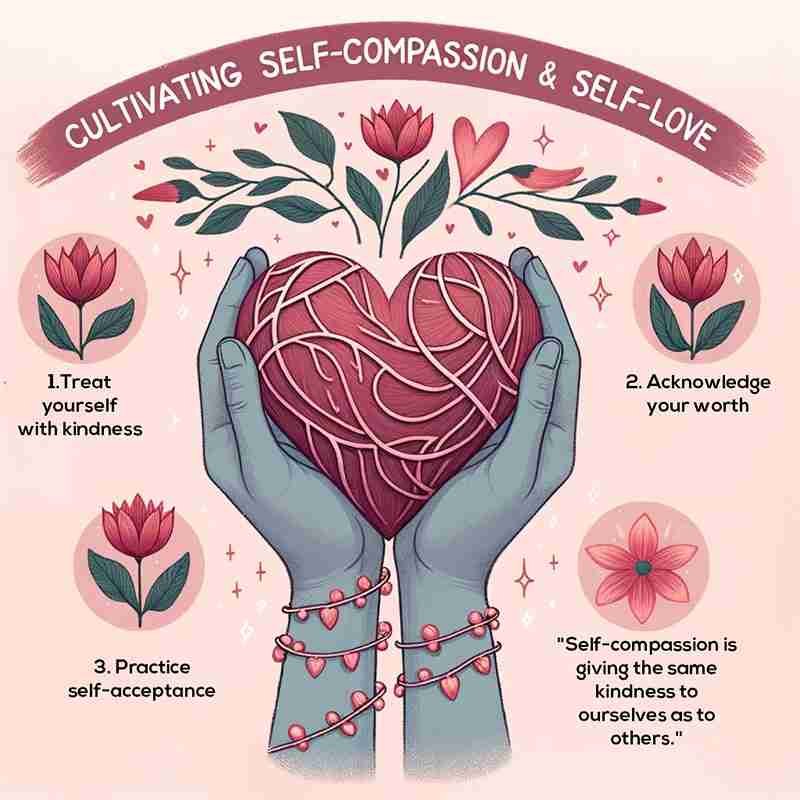Feeling unmotivated or experiencing imposter syndrome can be tough to overcome, but it doesn’t have to hold you back. This practical guide empowers you to conquer imposter syndrome and boost your motivation. By implementing these techniques, you can reach new heights in your personal and professional life.
Key Takeaways:
- Identify imposter syndrome symptoms to address and overcome them.
- Cultivate self-compassion and self-love to build resilience and enhance your well-being.
- Develop a growth mindset to embrace challenges and view setbacks as opportunities for growth.
- Overcome perfectionism and procrastination to foster productivity.
- Harvest intrinsic and extrinsic motivation to achieve success in your endeavors.
Understanding Imposter Syndrome
Imposter syndrome is a phenomenon where individuals doubt their abilities, fearing they will be exposed as frauds despite evidence of their accomplishments. This self-doubt can lead to inadequacy, low self-esteem, and unworthiness.
Those who experience imposter syndrome may struggle with self-belief and self-worth, leading to a fixed mindset and self-sabotage. They may also engage in self-criticism, focusing on their shortcomings instead of their successes.
“One of the most common beliefs about imposter syndrome is that it only affects women. However, studies have shown that both men and women can experience imposter syndrome, regardless of their level of success.”
It’s important to recognize the impact of imposter syndrome on your confidence and well-being. By understanding the symptoms and thought patterns associated with imposter syndrome, you can take proactive steps to overcome it and foster a growth mindset.
Recognizing Imposter Syndrome Symptoms
If you’re struggling with imposter syndrome, it’s essential to recognize the symptoms it can cause. Imposter syndrome can lead to feelings of self-doubt, which can affect your self-confidence and self-esteem. It can also cause you to question your abilities and accomplishments, creating a sense of unease.
Some common symptoms of imposter syndrome include:
- Feeling like a fraud even when you are successful
- Attributing your success to external factors, such as luck or timing
- Minimizing your accomplishments or feeling like they are not significant
- Feeling anxious or stressed about being “found out”
- Constantly seeking validation from others
- Perfectionism and fear of failure
- Hesitating to take on new challenges or opportunities
- Doubting your abilities and skills
If you’re experiencing any of these symptoms, it’s essential to acknowledge them and take proactive steps to address them. Recognizing imposter syndrome as a legitimate issue, rather than dismissing it as a personal failing, can help you build self-confidence and self-esteem.
Remember that imposter syndrome is a shared experience, and you are not alone in your struggles. By recognizing these symptoms, you can overcome imposter syndrome and achieve your goals with greater self-assurance.
Cultivating Self-Compassion and Self-Love
Imposter syndrome can result from negative self-talk, where you criticize and doubt yourself excessively. To overcome imposter syndrome, it’s essential to cultivate self-compassion and self-love.
Self-compassion means treating yourself with kindness and understanding rather than harshly criticizing yourself. It involves recognizing that everyone makes mistakes and experiences setbacks and that you are not alone in your struggles.
“Self-compassion is simply giving the same kindness to ourselves that we would give to others.” – Christopher Germer
Self-love is about accepting and appreciating yourself for who you are, rather than constantly seeking external validation. It involves recognizing your strengths, celebrating your accomplishments, and acknowledging your worth.
Self-acceptance is also essential for cultivating self-compassion and self-love. This means acknowledging and embracing all aspects of yourself, including your flaws and imperfections. By accepting yourself unconditionally, you can develop resilience and enhance your well-being.
Practicing self-compassion and self-love requires intentional effort. Start by being mindful of your self-talk and challenging negative thoughts. Treat yourself with kindness, and practice forgiveness when you make mistakes. Focus on your strengths and accomplishments, and celebrate your progress. By cultivating self-compassion and self-love, you can combat imposter syndrome and develop a strong sense of self-confidence.

Developing Self-Awareness and Self-Improvement
To overcome imposter syndrome, developing self-awareness and self-improvement are crucial. Self-awareness involves understanding your strengths, weaknesses, values, and beliefs. By examining your thought patterns and behaviors, you can identify and address any self-doubt or negative self-talk that may fuel imposter syndrome.
Personal and professional development can also boost your confidence and skills. Consider taking courses, attending workshops or seminars, or reading books in areas that interest you. Focus on improving your strengths and addressing any weaknesses to enhance your overall performance.
The Importance of Personal Development
“Personal development is a continuous process of self-improvement, learning, and growth. By investing in yourself, you can enhance your knowledge, skills, and confidence, which can lead to greater success and satisfaction in both your personal and professional life.”
Personal development can help you clarify your goals, values, and priorities. By setting clear objectives and developing an action plan, you can make progress toward your aspirations and overcome any obstacles that may arise.
The Role of Professional Development
“Professional development involves enhancing your skills and knowledge to excel in your career. It can help you stay up-to-date with the latest trends and best practices and enhance your overall performance.”
Professional development can include attending conferences, participating in training programs, or earning certifications. By investing in yourself and your career, you can become more confident and excel in your role, reducing the likelihood of imposter syndrome.
By developing self-awareness and pursuing personal and professional development, you can overcome imposter syndrome and reach new heights in your personal and professional life.
Nurturing a Growth Mindset
To overcome imposter syndrome, it’s important to nurture a growth mindset. This means acknowledging that you can learn, grow, and improve, rather than being stuck in a fixed mindset that views abilities as predetermined and unchanging.
One key aspect of nurturing a growth mindset is cultivating positive thinking. Instead of dwelling on negative thoughts and self-doubt, focus on your accomplishments and strengths. Remind yourself that mistakes and failures are opportunities for growth and learning.
“The only limit to our realization of tomorrow will be our doubts of today.” – Franklin D. Roosevelt
It’s important to reframe negative thoughts constructively. For example, instead of thinking, “I’m not good enough,” try reframing it as “I may not be perfect, but I am capable of learning and improving.”
Another way to nurture a growth mindset is to set achievable goals and focus on the improvement process rather than solely on the end result. Celebrate small milestones and progress rather than fixating on perfection.
Remember that everyone has room for growth and improvement. Embrace challenges and view setbacks as opportunities for learning and development. By nurturing a growth mindset, you can combat imposter syndrome and reach new heights in your personal and professional life.
Overcoming Perfectionism and Procrastination
If you’re experiencing imposter syndrome, you may struggle with perfectionism and procrastination. These tendencies can hinder your progress and sap your motivation, leading to further doubts and stress. Fortunately, there are strategies you can use to overcome these obstacles and boost your productivity.
Cultivate a Growth Mindset
Perfectionism and procrastination often stem from a fear of failure or a fixed mindset that assumes you’re either good at something or not. To combat this, try adopting a growth mindset that views mistakes and setbacks as opportunities for learning and growth. Embrace the process rather than focusing solely on the outcome.
Set Realistic Goals
Perfectionists may set unattainable goals for themselves, leading to self-doubt and frustration when they inevitably fall short. Instead, set realistic, achievable goals that are challenging but not overwhelming. Break larger goals into smaller, manageable tasks to make them more approachable.
Take Action
Procrastination often stems from feeling overwhelmed or uncertain about the task at hand. Combat this by breaking tasks into smaller steps and taking action on one step at a time. Use a timer or schedule to hold yourself accountable and avoid distractions.
Practice Self-Compassion
Perfectionism and procrastination can be fueled by self-criticism and a lack of self-compassion. Practice speaking to yourself as you would a friend, offering kindness and encouragement instead of judgment. Celebrate small victories and allow for mistakes along the way.
“Perfectionism is self-abuse of the highest order.” – Anne Wilson Schaef
Seek Support
If you’re struggling with perfectionism or procrastination, don’t hesitate to seek support from friends, family, or a professional. Consider joining a support group or seeking therapy to address underlying issues contributing to these behaviors.
By taking proactive steps to overcome perfectionism and procrastination, you can boost your motivation and overcome imposter syndrome. Remember to practice self-compassion, set realistic goals, and take action one step at a time. You’ve got this!
Harnessing Intrinsic and Extrinsic Motivation
When it comes to motivation, there are two main types: intrinsic and extrinsic. Intrinsic motivation is the drive from within, while extrinsic motivation results from external factors like rewards and recognition. Both types are essential for success, but finding the right balance can be challenging, especially when dealing with imposter syndrome.
Intrinsic motivation is powerful because it is driven by your internal desires and values. When intrinsically motivated, you do something because you enjoy it, not because of any external gains. To boost intrinsic motivation, try setting goals that align with your values, finding the joy and purpose in your work, and celebrating small wins along the way.
Extrinsic motivation is effective when it aligns with your intrinsic motivation. When external factors like rewards and recognition are connected to your internal values, they can provide an extra push toward success. However, when external rewards are disconnected from your internal values, they can lead to burnout and decreased motivation. To harness extrinsic motivation, try setting specific, achievable, and rewarding goals that align with your values.
In short, it’s essential to understand the differences between intrinsic and extrinsic motivation, and how they relate to your personal and professional goals. Finding a balance between the two and aligning them with your values can help you overcome imposter syndrome and achieve success on your terms.
Achieving Flow State and Peak Performance
Achieving a state of flow can be a powerful tool for enhancing productivity and achieving peak performance. Flow state is a mental state in which you are fully immersed in a task, losing track of time and experiencing a sense of deep focus and enjoyment.
To achieve flow state, it’s essential to eliminate distractions and create an environment that supports concentration. This may involve turning off notifications on your phone or computer, finding a quiet space to work, or using noise-cancelling headphones to block out external noise.
It’s also important to set clear goals and break tasks into manageable pieces. This allows you to focus on one step at a time, reducing the likelihood of feeling overwhelmed or distracted.
Building breaks into your workday can also help you achieve flow state. Taking short breaks every hour or so can help you recharge and refocus, preventing burnout and maintaining your productivity throughout the day.
Achieving flow state is also closely connected to achieving a healthy work-life balance. By setting boundaries and prioritizing self-care, you can prevent burnout and maintain your energy and motivation over the long term.
By cultivating a state of flow in your work and personal life, you can tap into your full potential and achieve peak performance.
Conclusion
By implementing the strategies we have discussed in this guide, you have the tools to unlock your motivation and overcome imposter syndrome. Cultivating self-compassion, developing self-awareness, and nurturing a growth mindset are essential for addressing self-doubt, self-criticism, and fixed mindsets.
Recognizing the symptoms of imposter syndrome and overcoming perfectionism and procrastination are also critical for empowering yourself to reach your full potential. Harnessing intrinsic and extrinsic motivation, achieving flow state, and balancing productivity with a healthy work-life balance will also support your journey to success.
Remember, conquering imposter syndrome is a process that takes time and effort. Be patient with yourself, celebrate your successes along the way, and keep pushing forward. You are capable of achieving great things in your personal and professional life.
Empower Yourself to Reach New Heights
In conclusion, this guide has provided you with a practical, step-by-step approach to boost your motivation and conquer imposter syndrome. By implementing these strategies in your daily life, you can cultivate self-confidence, resilience, and a success mindset. Empower yourself to reach new heights in your personal and professional endeavors.
FAQ
What is imposter syndrome?
Imposter syndrome refers to the persistent feeling of inadequacy and self-doubt, despite evidence of competence and accomplishments.
How does imposter syndrome affect self-confidence?
Imposter syndrome often leads to a lack of self-confidence, as individuals doubt their abilities and believe they will be exposed as a fraud.
What are the common symptoms of imposter syndrome?
Common symptoms of imposter syndrome include self-doubt, fear of failure, perfectionism, and the need for validation from others.
How can I cultivate self-compassion and self-love?
Cultivating self-compassion and self-love involves treating yourself with kindness, acknowledging your worth, and practicing self-acceptance.
How can self-awareness help in overcoming imposter syndrome?
Self-awareness allows individuals to recognize their imposter syndrome tendencies and take proactive steps to address and overcome them.
What strategies can help combat perfectionism and procrastination?
Strategies to combat perfectionism and procrastination include setting realistic goals, breaking tasks into smaller steps, and focusing on progress rather than absolute perfection.
What is intrinsic motivation and how can I harness it?
Intrinsic motivation refers to being driven by internal factors such as enjoyment, satisfaction, or personal growth. You can harness it by identifying activities that truly inspire and energize you.
How can I achieve a state of flow and peak performance?
Achieving a state of flow and peak performance involves finding activities that challenge you while maintaining a level of skill, focusing fully on the task at hand, and creating an environment conducive to concentration and productivity.
How can I reach a healthy work-life balance?
Reaching a healthy work-life balance requires setting boundaries, prioritizing self-care, and allocating time for activities outside of work that bring you joy and fulfillment.
What is the conclusion of this guide?
In conclusion, this guide has provided practical strategies to unlock motivation and overcome imposter syndrome. By implementing these techniques, you can cultivate self-confidence, resilience, and a success mindset, empowering yourself to reach new heights in your personal and professional endeavors.





